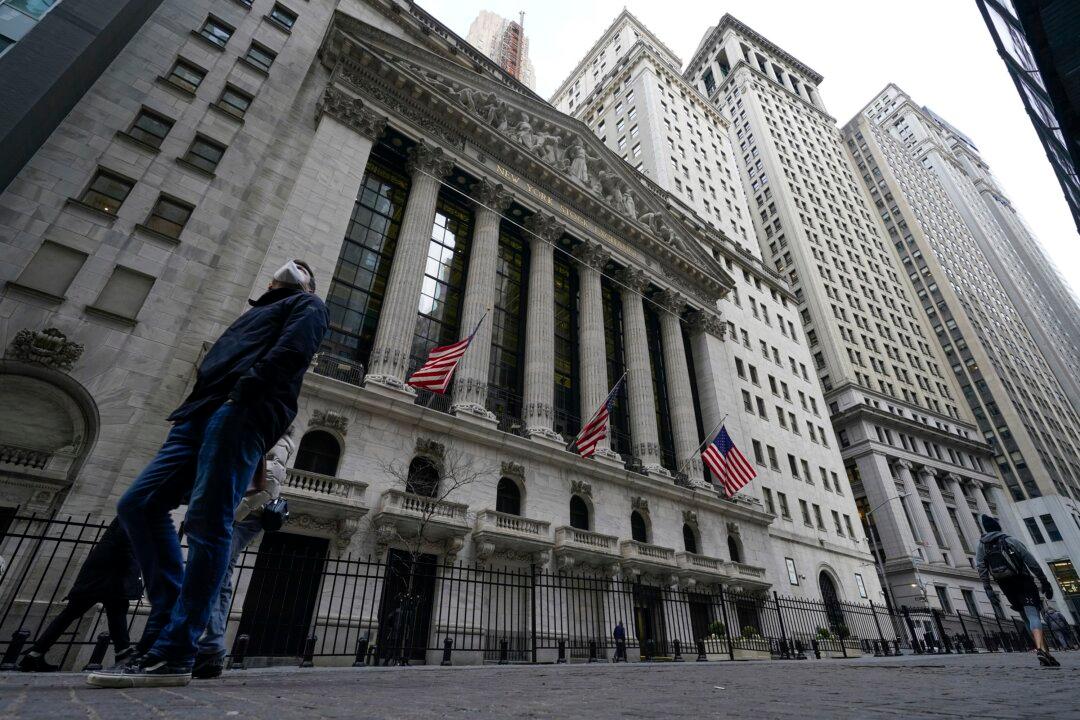NEW YORK—Wall Street blazed to another rally Friday to close a winning week, month and first half of the year after reports suggested pressure on inflation may be easing.
The S&P 500 climbed 1.2 percent to reach its highest level since April 2022. The Dow Jones Industrial Average rose 285 points, or 0.8 percent, and the Nasdaq composite jumped 1.4 percent.





